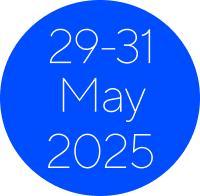Chair: Rachel C Stockley (United Kingdom)
Speakers: Thoshenthri Kandasamy (Australia), John M Solomon (India)
- Explore innovative initiatives to improve stroke recovery and rehabilitation spanning Low, Middle and High Income countries
- Discuss implementation of guidelines in different practice settings using a global, innovative knowledge translation framework
- Share practical tools and a framework to support successful adoption of innovation, specifically technologies, in different rehabilitation settings
Stroke is the largest cause of neuro-disability globally and one in four people over the age of 25 are at the risk of developing a stroke. At least a third of the stroke survivors will require significant rehabilitation, therefore evidence-based physiotherapy for stroke rehabilitation is a key priority for global health services.
This session will explore innovative initiatives that seek to provide excellence in global stroke rehabilitation. Drawing upon global work from the International Stroke Recovery and Rehabilitation Alliance (ISRRA) and recent research, this session aims to equip attendees with the knowledge to inspire them to embed innovation and excellence into their setting. It will present learning from clinical practice and research highlighting a range of globally and locally appropriate innovations.
Session outline
The session will begin with the Chair (Dr Rachel C Stockley) who will provide an overview of the global challenges of stroke rehabilitation, linking to the WHO Rehabilitation 2030 initiative. She will present the aims of the session and, using interactive polling, establish the experiences and views of attendees.
Thoshenthri Kandasamy will then present work from a global group of experts in stroke rehabilitation, brought together via ISRRA, who developed criteria for global centres of clinical excellence in stroke recovery and rehabilitation. These criteria highlight the culture and approaches that can engender excellence in clinical centres and enable identification and sharing of good practice. She will report the development and subsequent evaluation of practical performance indicators developed to measure clinical excellence.
The second speaker, Dr John Solomon will present learning from developing and embedding guidelines into a resource -constrained settings. He will explore the different priorities of clinicians and discuss factors affecting knowledge translation. Using developing and low-cost technology as an example, he will also present findings of how innovation can enable a greater intensity of training and elicit better recovery after stroke.
The final speaker, Dr Rachel C Stockley, will build on Dr Solomon’s work by presenting qualitative research that highlights key facilitators and barriers that influence the implementation of innovation into clinical practice. She will discuss the findings from 45 interviews of healthcare stakeholders that explore the processes and views of change and present a framework that supports adoption of innovation, specifically technology, into clinical practice.
The session will close with a brief summary of the key take home messages and a panel discussion where attendees will be encouraged to discuss their experiences of innovation in practice, share their successes and explore potential solutions.
Conclusions and implications
This symposium will equip attendees with practical knowledge from global rehabilitation research and practice. By exploring initiatives to improve clinical stroke rehabilitation, the symposium aims to inspire attendees to embed excellence in rehabilitation to meet the increasing global demand for high quality physiotherapy.
- Stockley, RC, Walker MF, Alt Murphy, M et al Criteria and Indicators for Centers of Clinical Excellence in Stroke Recovery and Rehabilitation: A Global Consensus Facilitated by ISRRA. Neurorehabilitation and Neural Repair 2024 Feb;38(2):87-98. doi: 10.1177/15459683231222026
- Bernhardt, J., Hayward, K., Kwaklel, G, Ward, NS et al. Agreed definitions and a shared vision for new standards in stroke recovery research: The Stroke Recovery and Rehabilitation Roundtable taskforce Int J Stroke 2017 Jul;12(5):444-450. doi: 10.1177/1747493017711816
- Gururaj, S, Bird, M, Borschmann, K, Eng, J, Watkins, C, Walker, M, Solomon, JM; SRRR2 KT working group Evidence-based stroke rehabilitation: do priorities for practice change and feasibility of implementation vary across high income, upper and lower-middle income countries? Disabil Rehabil 2022 Aug;44(17):4611-4618.
- Bernhardt J, Urimubenshi G, Gandhi DBC, Eng JJ. Stroke rehabilitation in low-income and middle-income countries: a call to action. Lancet. 2020 Oct 31;396(10260):1452-1462. doi: 10.1016/S0140-6736(20)31313-1.
- Bernhardt J, Corbett D, Dukelow S, Savitz, S., Solomon, J, Stockley, RC et al. The International Stroke Recovery and Rehabilitation Alliance. The Lancet Neurology 2023; 22: 295–296.
See the 24 focused symposia to be presented at congress.
Find out who the key speakers at congress will be.
Find out which clinical topics will be covered in these discussion-based seminars.




